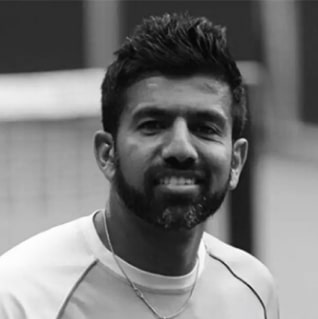
Smart Work, not Hard Work – 12 Ways to Study Better
Every sportsperson faces difficulty in balancing their sports training and academic endeavors. Every student has the same number of hours in a day, but how they use it matters. They can either spend hours together, attempting to comprehend the syllabus or adapt new study methods that can assist them in reducing the hard work, and focus our energy on developing other skills.
Every person has a different way of retaining information; what helped one might not serve another, and it’s crucial to develop your way to learn. Computing the most efficient way to study is a never-ending process; one can always discover new techniques for improving our approach towards learning.
So here are a couple of tips that can help you study better.
1. What is ‘Your’ learning style?
Like stated earlier, everyone has a different way of grasping information, and it can be divided broadly into four categories:
● Visual learners: they learn more efficiently by seeing, it can be through diagrams, color-codes, videos, and patterns.
● Auditory learners – they learn best by listening. Now this includes speeches, music, rhyme, and additional sounds.
● Reading/writing learners: they learn by reading and writing relevant information down.
● Kinesthetic learner: they enjoy learning by actually doing it, like role-playing, building blocks, drawing, and making flashcards. For them, it is mandatory to put abstract data into practice.
Discover and implement your learning style in daily practice. If you’re a visual learner, then watch videos online, if you’re an auditory learner, listen to classes, songs, and other forms of sounds.
2. Silence isn’t always the key
In contrary to popular opinion, silence doesn’t work for everyone, so figure out which noise environment works well for you. Listening to music enhances concentration for some, while for others, it might be a disturbance. The point is, silence can be as distracting as a background buzz, so choose a place that suits you the best.
3. Change your scenery
Psychologists suggest that a change in scenery can intensify your concentration and retention levels, and it can also help your brain build various associations with particular study material. Now, this change in scenery can range from a switch in the room, to advancing a step ahead and picking an outdoor location.
4. Break the digital, print is the way to go!
You are more likely to forget what you read on your laptop or phone than what you learn from a book. Moreover, a study has claimed that students who take notes on their laptops tend to know less efficiently in contrast to the ones who write it by hand. Now, this is not just because of the online distraction but also because, when you register, your mind processes the information better. So, lose the screen, take notes manually, and get those online articles printed!
5. Studying is not just read
Reading is not the same as studying, since it does not include the active engagement of the participant. Reading and re-reading will not help you remember; it is necessary to make sense of the text and actively involve in the process. Here the question is, how do we formulate a method to study? This is possible by generating a concept map, making and understanding diagrams, develop examples that you are familiar with, try connecting concepts with real-life situations.
6. Stick to a schedule
Making a schedule can help you concentrate and urge you to study regularly. Sit down and make a list of your daily goals, it will motivate you to finish your work on time, and you won’t miss out on assignments.
7. Is multitasking a good idea?
Multitasking is a myth. Researches suggest that multitasking reduces your efficiency and leads to a negative impact on your work. You might think you’re doing a great job at it, but the truth is you’re developing harmful study habits that will affect you in the long run. Always stick to one work at a time and give it your 100%.
8. Getting into the zone
Some people need a medium to get into the ‘study zone.’ It can be music, art, or any other form of activity that calms your mind down and increases your concentration level. Find what works for you and implement it whenever you find it difficult to focus.
9. Take regular breaks
The average concentration span of most people is about 50 minutes in a go, but that’s just an average; your attention span might be as less as 20 minutes or more than an hour, identify yours and take breaks accordingly. Short sessions can help retain more information accurately than stuffing yourself with everything at once.
10. Snooze away the alarm
Pulling off all-nighters is the new trend, but is it a healthy one? Sleep is as vital as food for a human body, so never underestimate the power of a sound slumber. Sleep at least 8 hours to be more alert and focused while working. It will help you convert short-term memory to long-term, and you will learn better.
11. Break the monotone: study multiple subjects
Sticking to one subject and deep-diving into it is not an excellent idea, you might feel burned-out, and lose enthusiasm for that matter. Always juggle between topics rather than zeroing to one.
12. Become the teacher
The job of a teacher is to learn the subject matter and further explain it to the students, and when one does that they gain a clear understanding of the topic in hand. Besides that, they will also reach out to learn new techniques for recalling when expected to teach.
The aim is to study smart, not to study hard! Efficient learning is a skill that will benefit you for life. We understand the pressure students face while studying and focusing on other fields at once, so follow these tips for a better learning experience, without compromising on your dreams.




























